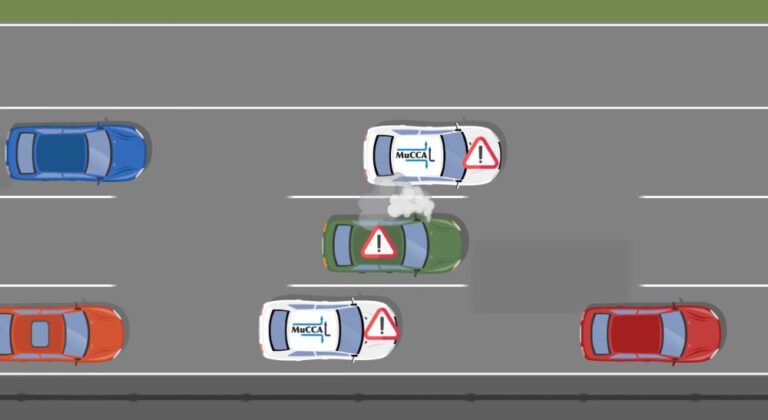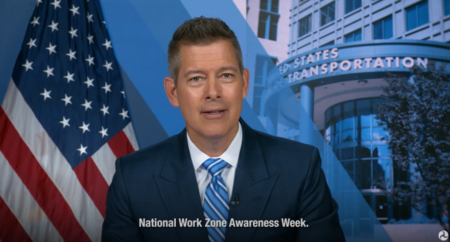A pioneering UK project has developed technology that could radically reduce the number of multi-vehicle collisions on the country’s motorways and in situations where a crash cannot be avoided, the system will attempt to minimise its consequences.
Although the UK has some of the safest roads in the world, around 4,500 accidents still happen on the country’s motorways each year, contributing to 1,700 annual deaths and over 22,000 serious injuries. Incidents on the motorway network also cause delays and congestion that can have a serious economic impact on UK businesses, costing around £8bn (US$9.3bn) a year according to estimates. The technology tested by the Multi-Car Collision Avoidance (MuCCA) research and development project has the potential to significantly reduce these.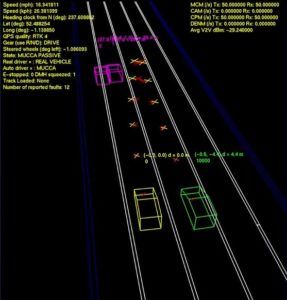
Funded by Innovate UK and the Centre for Connected and Autonomous Vehicles (CCAV), and delivered by a consortium led by Applus Idiada with Cranfield University, Westfield Sports Cars, Cosworth, SBD Automotive and Connected Places Catapult, the 30-month MuCCA project has seen specially equipped vehicles successfully complete replicas of real-life UK motorway scenarios on test tracks.
The MuCCA project has used artificial intelligence (AI) and Vehicle-to-Vehicle (V2V) communications to instruct autonomous vehicles to cooperatively make decisions to avoid potential incidents. When the technology in the vehicles detects an incident, the cars share information by radio links, and the onboard computers calculate the best manoeuvres to avoid the obstacles and then safely steer the agreed path to avoid an accident. The MuCCA equipped vehicles also avoid each other and remove the need to brake suddenly, which may have previously caused vehicles following behind to drive into them.
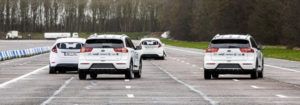 Although connected and autonomous vehicles (CAVs) are expected to become increasingly common on the world’s roads within the next 10 years, there will however be a great many non-autonomous ‘human-driven’ vehicles that will remain for the foreseeable future. In this near-future scenario, MuCCA equipped vehicles could take on the added complexity of anticipating the likely behaviour of any human drivers in the vicinity of an incident. By predicting the probable paths of human-driven vehicles, MuCCA vehicles can help to reduce the number of vehicles involved in any inevitable incident, preventing potential multi-car motorway ‘pile-ups’.
Although connected and autonomous vehicles (CAVs) are expected to become increasingly common on the world’s roads within the next 10 years, there will however be a great many non-autonomous ‘human-driven’ vehicles that will remain for the foreseeable future. In this near-future scenario, MuCCA equipped vehicles could take on the added complexity of anticipating the likely behaviour of any human drivers in the vicinity of an incident. By predicting the probable paths of human-driven vehicles, MuCCA vehicles can help to reduce the number of vehicles involved in any inevitable incident, preventing potential multi-car motorway ‘pile-ups’.
“The MuCCA project has delivered a world-first, achieving collective collision avoidance behaviour between real cars, in a clear demonstration of fully automated cooperative control mediated by vehicle-to-vehicle radio,” explained Charlie Wartnaby, technical lead at Applus Idiada UK. “Combining connectivity and automated driving like this has applications beyond the valuable emergency role proven here to more general cooperative vehicle movement, promising enhanced safety and efficiency on our roads in future. This places the UK at the commercial forefront of driving technology that will benefit all of society.”
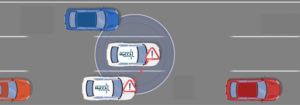 Autonomous cars researcher at Cranfield University, Icaro Bezerra-Viana, commented, “Computer simulations enabled us to model how human drivers behave on motorways, and how the proximity of surrounding cars influences their behaviour. The movement of the cars that surround a vehicle over the next few seconds can then be predicted in order to avoid a collision. Being part of the MuCCA consortium and working with partners has enabled us to learn more techniques and work together to find the most appropriate solutions.”
Autonomous cars researcher at Cranfield University, Icaro Bezerra-Viana, commented, “Computer simulations enabled us to model how human drivers behave on motorways, and how the proximity of surrounding cars influences their behaviour. The movement of the cars that surround a vehicle over the next few seconds can then be predicted in order to avoid a collision. Being part of the MuCCA consortium and working with partners has enabled us to learn more techniques and work together to find the most appropriate solutions.”
To watch a video of the project’s final demonstration event, click HERE


